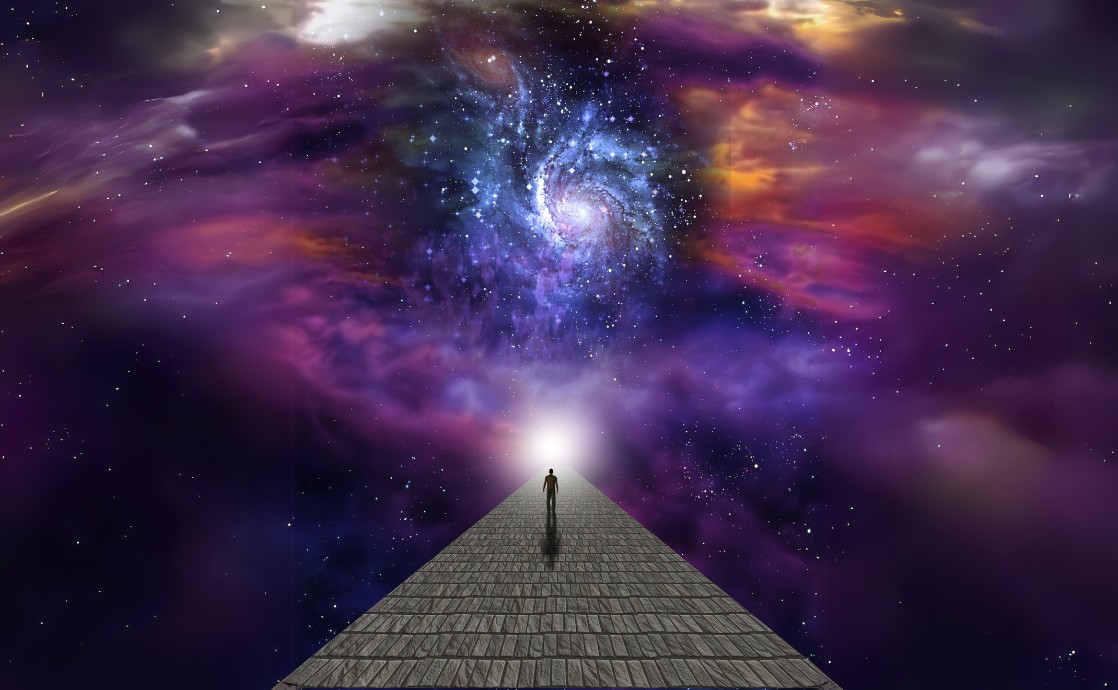The views expressed in our content reflect individual perspectives and do not represent the authoritative views of the Baha'i Faith.
My musician/atheist friend Ari said he thought it a “daring assumption” that Jesus was a real person, let alone that he was a real person sent by God to educate humankind. It didn’t seem all that daring to me.
Certainly, it seems no more daring than assuming that the sun that rose on Monday is the same sun that will rise on Friday, regardless of what name we give the day.
RELATED: Is Jesus God? A Baha’i Answers
I have no reason to doubt that Jesus of Nazareth was a real person, and yes, I’ve done the “opposition research.” I’ve read the New Atheist authors — Richard Dawkins, Sam Harris, Christopher Hitchens, Daniel Bennett, etc. — and consumed a wide array of histories of Christianity, as well.
After all that independent investigation, do I still hold the view of Jesus Christ that I was raised with in the various Christian churches I attended? No.
Do I believe the fact that Jesus is not the creation some dogma has made him means he didn’t exist as a real person? Also, no.
Do I believe that this makes him less of a spokesperson for the Divine? Again, no, but I understand the rationale behind the effort to create doubt.
Many Western atheists and anti-theists treat religion as if Christianity is the only significant religious experience and seem to think that if its premises can only be destroyed, all religion will go poof in a puff of logic.
This is a straw religion — an amalgam of stereotypes and archetypes, as if all Christianity and all believers in Christ are cut from the same cloth and have identical beliefs. Centuries of schism and even bloodshed indicate otherwise.
As if to demonstrate this trend, Ari told me: “I’m quite sure that, regardless of your intellect, you don’t find the resurrection story to be obvious nonsense.”
I paraphrased Ari’s statement back to him to be sure I’d read it right: You’re “quite sure” I believe that Jesus physically rose from the dead? That he resurrected a material body made of flesh and blood and bone? Why would you assume that?
This head-scratcher was wrong on at least two counts:
1. That there is only one (materialistic) way to understand the concept of resurrection, and
2. That all religious people (or at least all religious people who revere Christ) adhere to it.
Yes, I suppose I did believe in a physical resurrection when I was a child. When I was a young adult and first encountered the Baha’i Faith, its teachings challenged me to question my assumptions about what the Bible taught. I began studying it in earnest, eschewing cherry-picking and looking, instead, for context, not just with Christianity and Judaism, but with the other revealed faiths.
The Baha’i teachings present, as a core principle, that faith should be in harmony with reason. This seemed revolutionary to me at the time … but also obvious:
Religion is the outer expression of the divine reality. Therefore, it must be living, vitalized, moving and progressive. If it be without motion and nonprogressive, it is without the divine life; it is dead. The divine institutes are continuously active and evolutionary; therefore, the revelation of them must be progressive and continuous. All things are subject to reformation. … Would the announcements and theories of ancient astronomers explain our present knowledge of the suns and planetary systems? Would the mask of obscurity which beclouded medieval centuries meet the demand for clear-eyed vision and understanding which characterizes the world today? Will the despotism of former governments answer the call for freedom which has risen from the heart of humanity in this cycle of illumination? It is evident that no vital results are now forthcoming from the customs, institutions and standpoints of the past. In view of this, shall blind imitations of ancestral forms and theological interpretations continue to guide and control the religious life and spiritual development of humanity today? Shall man, gifted with the power of reason, unthinkingly follow and adhere to dogma, creeds and hereditary beliefs which will not bear the analysis of reason in this century of effulgent reality?
These Baha’i principles were thunderclap-inducing when I first read them. I was amazed at how differently I read the passages in the New Testament that dealt with resurrection in light of Abdu’l-Baha’s words. Because of this, I had to ask myself, “What is the purpose of a bodily resurrection, given that Christ’s reality (and the human reality in general) is an intellectual and spiritual one?”
Christ, himself, made perfectly clear in John 6:63 that “It is the Spirit who gives life; the flesh profits nothing. The words that I speak to you, they are spirit and they are life.”
In 1 Corinthians chapter 15, Paul explains that Christ did not rise up as a physical body. The dogmatic belief that he did flies in the face of his own teachings on the unimportance of material things and is exemplary of the way human beings like to edit religion to reflect what they value most — in this case, physical existence.
RELATED: How Jesus of Nazareth Became the Christ
Here is a bit of what the Apostle Paul tried eloquently and valiantly to explain to the church at Corinth, and by extension, all believers in Christ:
But someone will say, “How are the dead raised up? And with what body do they come?” Foolish one, what you sow is not made alive unless it dies. And what you sow, you do not sow that body that shall be, but mere grain … It is sown a natural body, it is raised a spiritual body. … And so it is written, “The first man Adam became a living being. The last Adam became a life-giving spirit.” Now this I say, brethren, that flesh and blood cannot inherit the kingdom of God; nor does corruption inherit incorruption. … For the trumpet will sound, and the dead will be raised incorruptible, and we shall be changed. … So when this corruptible has put on incorruption, and this mortal has put on immortality, then shall be brought to pass the saying that is written: “Death is swallowed up in victory. O Death, where is your sting? O Hades, where is your victory?”
Somehow, Paul’s words about flesh and blood not inheriting the kingdom of God and Christ arising as a “life-giving spirit” have gotten lost in the appealing idea that the resurrection will simply provide believers with perfect physical bodies. What constitutes a perfect physical body, considering all of the variations in human life on this planet, is debatable.
My best friend, who has only one complete arm due to an in-utero anomaly, often joked about the idea of a perfect human body. Of course, he’d have two whole arms at the resurrection, but he wondered about the rest of it. How old would he be? How tall? Was there a perfect height? What color eye was perfect? Or hair? Or body type? Did we get to choose?
Such a literal interpretation of something that even Paul resorts to multiple similes to describe merely bogs one down in unsolvable riddles.
Baha’u’llah makes the indescribability of the life of the human spirit a feature of one of his most often quoted references to the next life:
And now concerning thy question regarding the soul of man and its survival after death. Know thou of a truth that the soul, after its separation from the body, will continue to progress until it attaineth the presence of God, in a state and condition which neither the revolution of ages and centuries, nor the changes and chances of this world, can alter. It will endure as long as the Kingdom of God, His sovereignty, His dominion and power will endure. … The world beyond is as different from this world as this world is different from that of the child while still in the womb of its mother. When the soul attaineth the Presence of God, it will assume the form that best befitteth its immortality and is worthy of its celestial habitation.
I suggested to my atheist friend Ari that rather than having me try to condense forty-some-odd years of my own study into a Facebook comment thread, he might do his own reading. After all, it’s what I had to do after I went off in a high dudgeon, raring to prove the Baha’i Faith to be some new-age syncretistic cult.
Spoiler: I failed miserably and became a Baha’i.
















Comments
Sign in or create an account
Continue with Googleor